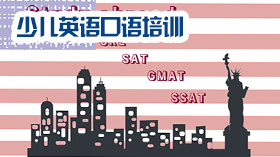很多同学在备考雅思时,不知道究竟该准备哪些备考资料。在此,推荐各位烤鸭宝宝可以从剑桥雅思真题入手。下面小编为大家带来剑桥7test2passage2真题文本,希望能为大家提供帮助。
剑桥7test2passage2真题文本
The True Cost of Food
A For more than forty years the cost of food has been rising. It has now reached a point where a growing number of people believe that it is far too high, and that bringing it down will be one of the great challenges of the twenty first century. That cost, however, is not in immediate cash. In the west at least, most food is now far cheaper to buy in relative terms than it was in 1960. The cost is in the collateraldamage of the very methods of food production that have made the food cheaper: in the pollution of water, the enervation of soil, the destruction of wildlife, the harm to animal welfare and the threat to human health caused by modern industrial agriculture.
B First mechanisation, then mass use of chemical fertilisers and pesticides, then monocultures, then battery rearing of livestock, and now genetic engineering - the onward march of intensive farming has seemed unstoppable in the last half-century, as the yields of produce have soared. But the damage it has caused has beencolossal. In Britain, for example, many of our best-loved farmland birds, such as the skylark, the grey partridge, the lapwing and the corn bunting, have vanished from huge stretches of countryside, as have even more wild flowers and insects. This is a direct result of the way we have produced our food in the last four decades. Thousands of miles of hedgerows, thousands of ponds, have disappeared from the landscape. The faecal filth of salmon farming has driven wildsalmon from many of the sea lochs and rivers of Scotland. Natural soil fertility is dropping in many areas because of continuousindustrial fertiliser and pesticide use, while the growth of algae is increasing in lakes because of the fertiliser run-off.
C Put it all together and it looks like a battlefield, but consumers rarely make the connection at the dinner table. That is mainly because the costs of all this damage are what economists refer to as externalities: they are outside the main transaction, which is for example producing and selling a field of wheat, and are bornedirectly by neither producers nor consumers. To many, the costs may not even appear to be financial at all, but merely aesthetic - a terrible shame, but nothing to do with money. And anyway they, as consumers of food, certainly aren't paying for it, are they?
D But the costs to society can actually be quantified and, when added up, can amount to staggering sums. A remarkable exercise in doing this has been carried out by one of the world's leading thinkers on the future of agriculture, Professor Jules Pretty, Director of the Centre for Environment and Society at the University of Essex.Professor Pretty and his colleagues calculated the externalities of British agriculture for one particular year. They added up the costs of repairing the damage it caused, and came up with a total figure of £2,343m. This is equivalent to £208 for every hectare of arableland and permanent pasture, almost as much again as the total government and EU spend on British farming in that year. And according to Professor Pretty, it was a conservative estimate.
E The costs included: £120m for removal of pesticides; £16m for removal of nitrates; £55m for removal of phosphates and soil; £23m for the removal of the bug cryptosporidium from drinking water by water companies; £125m for damage to wildlife habitats, hedgerows and dry stone walls; £1,113m from emissions of gases likely to contribute to climate change; £106m from soil erosionand organic carbon losses; £169m from food poisoning; and £607m from cattle disease. Professor Pretty draws a simple butmemorable conclusion from all this: our food bills are actuallythreefold. We are paying for our supposedly cheaper food in three separate ways: once over the counter, secondly through our taxes, which provide the enormous subsidies propping up modern intensive farming, and thirdly to clean up the mess that modern farming leaves behind.
F So can the true cost of food be brought down? Breaking away from industrial agriculture as the solution to hunger may be very hard for some countries, but in Britain, where the immediate need to supply food is less urgent, and the costs and the damage of intensive farming have been clearly seen, it may be more feasible. The government needs to create sustainable, competitive and diversefarming and food sectors, which will contribute to a thriving andsustainable rural economy, and advance environmental, economic, health, and animal welfare goals.
G But if industrial agriculture is to be replaced, what is a viablealternative? Professor Pretty feels that organic farming would be too big a jump in thinking and in practices for many farmers.Furthermore, the price premium would put the produce out of reach of many poorer consumers. He is recommending the immediate introduction of a ‘Greener Food Standard', which would push the market towards more sustainable environmental practices than the current norm, while not requiring the full commitment to organic production. Such a standard would comprise agreed practices for different kinds of farming, covering agrochemical use, soil health, land management, water and energy use, food safety and animal health. It could go a long way, he says, to shifting consumers as well as farmers towards a more sustainable system of agriculture.
以上是今天为大家分享的剑桥7test2passage2真题文本相关内容,想要了解更多剑桥雅思真题及答案解析,欢迎及时关注本站!
广州雅思英语学校成立于1999年,现任校长是有中国雅思“教父”之称的中国社会科学院博士、中国雅思教育开拓者,资深留学教育专家万昌明博士。广州雅思英语学校是国内最早的专业雅思学校之一,也是英语IELTS考试中文“雅思”命名的首创者之一。十九年来, 广州雅思英语学校秉承“教育以学生为本,以质量为先”办学宗旨,坚持“知识、激情、励志”的教学理念,发展成为华南乃至中国最大的雅思学校之一。



